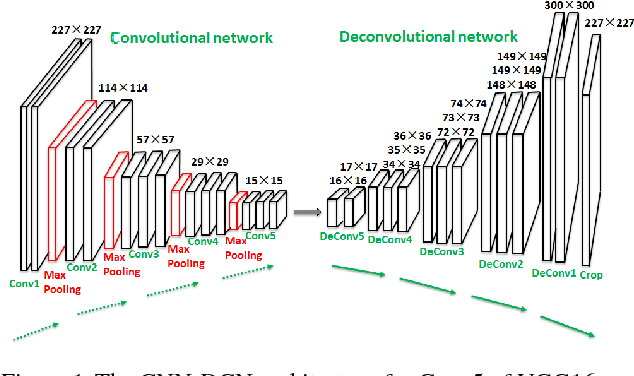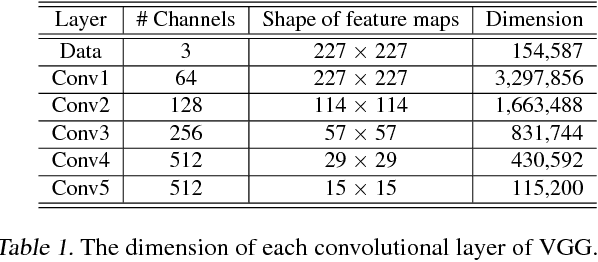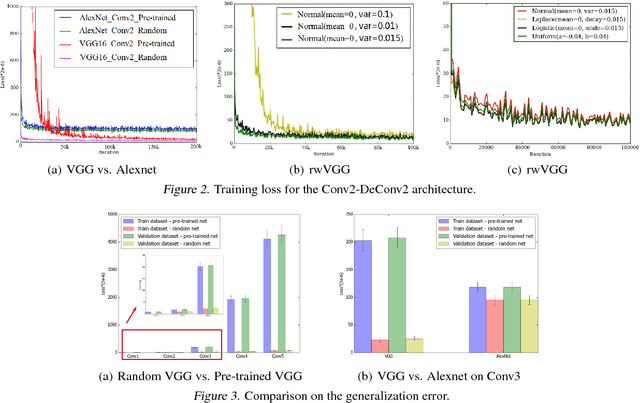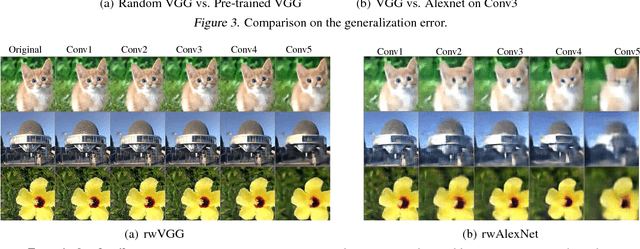Randomness in Deconvolutional Networks for Visual Representation
Paper and Code
Feb 20, 2018



Toward a deeper understanding on the inner work of deep neural networks, we investigate CNN (convolutional neural network) using DCN (deconvolutional network) and randomization technique, and gain new insights for the intrinsic property of this network architecture. For the random representations of an untrained CNN, we train the corresponding DCN to reconstruct the input images. Compared with the image inversion on pre-trained CNN, our training converges faster and the yielding network exhibits higher quality for image reconstruction. It indicates there is rich information encoded in the random features; the pre-trained CNN may discard information irrelevant for classification and encode relevant features in a way favorable for classification but harder for reconstruction. We further explore the property of the overall random CNN-DCN architecture. Surprisingly, images can be inverted with satisfactory quality. Extensive empirical evidence as well as theoretical analysis are provided.
 Add to Chrome
Add to Chrome Add to Firefox
Add to Firefox Add to Edge
Add to Edge